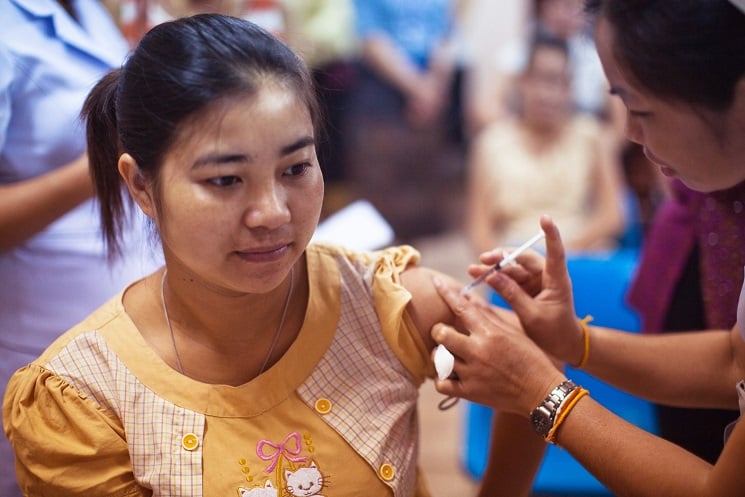VACCINES against melanoma could be developed after new research discovers HLA-peptides as unique markers for melanoma.
New research for the treatment of melanoma focusses on the body’s immune responses to fight the disease via recognition of peptides on the surface of tumour cells. Researchers from the Monash University’s Biomedicine Discovery Institute (BDI), Clayton, Australia, and the Olivia Newton-John Cancer Research Institute (ONJCRI), Victoria, Australia, led the study which found thousands of recognisable peptides uniquely prevalent on the surface of melanoma tumours.
The scientists recognised the exact sliced peptide melanoma markers and were able to synthesise them outside of the body before reintroducing them to the patient, activating the patient’s immune system to recognise and target the tumour site. “We considered how a melanoma tumour might ‘look’ to the human immune system, under different growth conditions. The sheer scope of melanoma peptides that we identified in this study, many of which have never been reported before, was both surprising and inspiring,” said Dr Katherine Woods, co-leader of the study, from ONJCRI.
The immunogenic peptides can be identified across different patients with melanoma and the findings have been immediately actioned with a novel clinical study on vaccination using spliced peptides at the Parker Institute for Cancer Immunotherapy, San Francisco, California, USA.
The researchers believe this could lead to further research on the existence of recognisable and targetable unique sliced peptides for other tumours. Prof Anthony Purcell, co-leader of the study, from Monash BDI, commented on the prospects of the results: “Based on these studies, spliced peptide antigens have moved from an immunological curiosity to a whole new class of actionable targets not just in melanoma but other cancers as well.”







